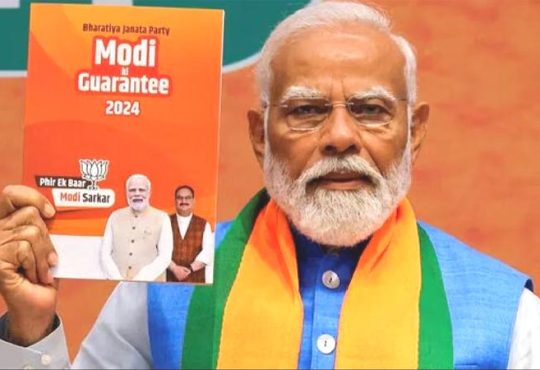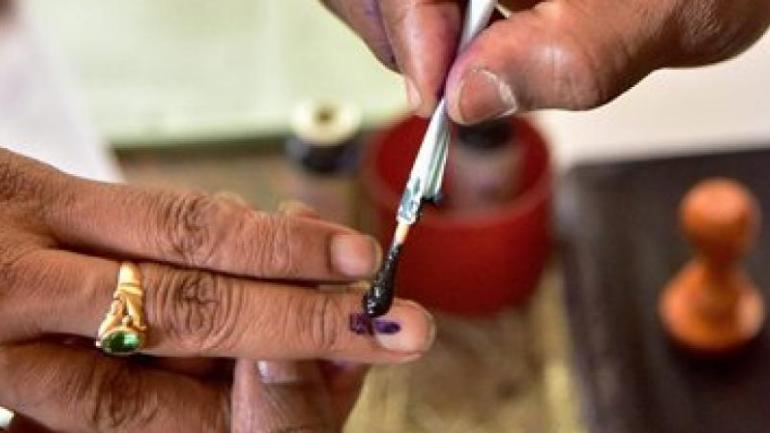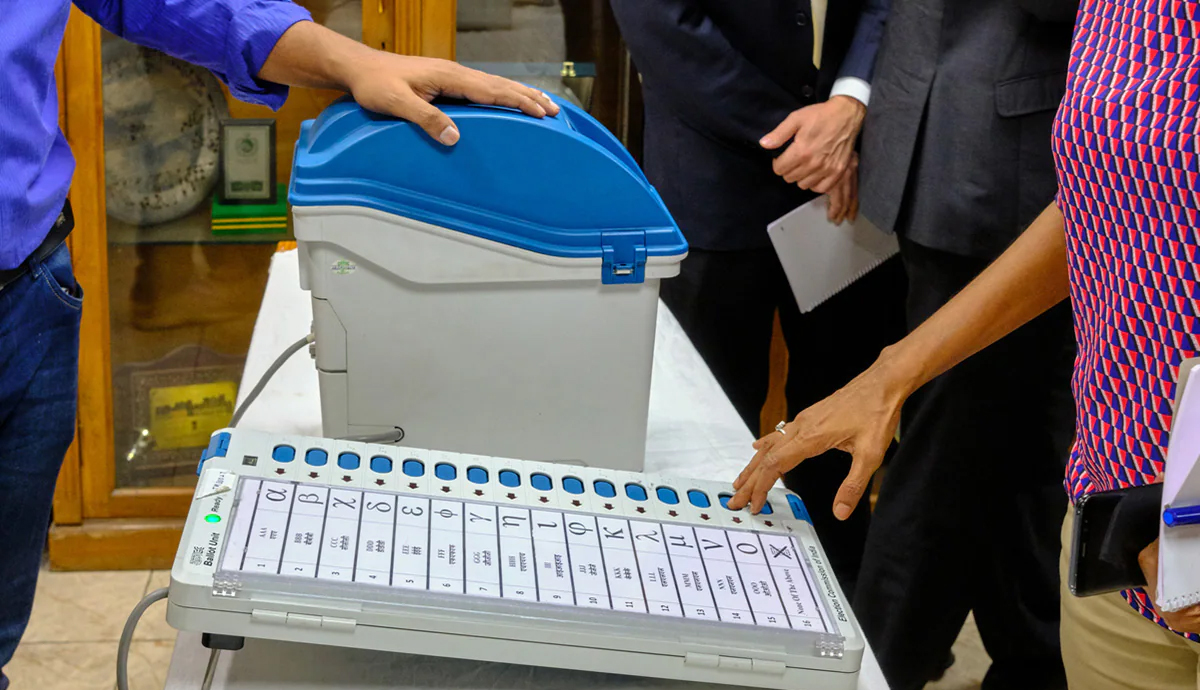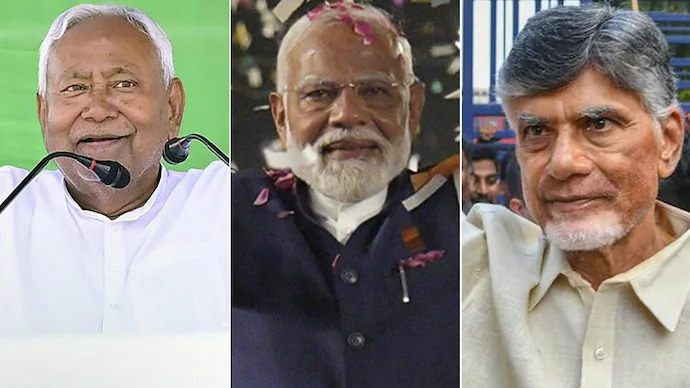The ruling BJP has unveiled its long-awaited manifesto, ‘Sankalp Patra’, for the Lok Sabha elections, with Prime Minister Narendra Modi emphasising the party’s commitment to the welfare of ‘GYAN’ — Garib, Yuva, Annadaata and Naari Shakti (the poor, youth, farmers and women)
 KRC TIMES National Bureau
KRC TIMES National Bureau

The ruling BJP has unveiled its long-awaited manifesto, ‘Sankalp Patra’, for the Lok Sabha elections, with Prime Minister Narendra Modi emphasising the party’s commitment to the welfare of ‘GYAN’ — Garib, Yuva, Annadaata and Naari Shakti (the poor, youth, farmers and women). Accompanied by Union Home Minister Amit Shah, Defence Minister Rajnath Singh and BJP chief JP Nadda, the Prime Minister presented the manifesto at the party headquarters in New Delhi. Modi outlined that the paper’s thrust areas were centred around the concept of ‘Viksit Bharat’ — empowering the youth, women, farmers and the economically disadvantaged. He stressed the importance of enhancing both the dignity and quality of life for all citizens, promising initiatives such as providing piped gas to every household and supplying free electricity through solar power. The manifesto pledges to extend the Centre’s free ration scheme and prioritise self-reliance in essential food items like pulses, edible oils and vegetables to stabilise prices and ensure food security. Additionally, it vows to expand flagship schemes like Ayushman Bharat and the PM Awas Yojana while ensuring access to clean drinking water in every home. In agriculture, the BJP promises to continue providing annual financial assistance of Rs 6,000 to farmers, enhance crop insurance through technology and implement periodic increases in the Minimum Support Prices. It also addresses the party’s commitment to implementing a uniform civil code, One Nation One Poll initiative, expansion of 5G networks, bolstering national security and abolishing waiting lists for train travel.
The main rival Congress’ manifesto, on the other hand, focuses on social welfare, economic reforms and addressing inequality through targeted interventions such as healthcare expansion, agricultural support and a caste census. In contrast, the BJP emphasises national security, infrastructure development and cultural issues, with a lesser emphasis on caste-based policies and regional grievances. Nadda reiterated the commitment to fulfil all promises encapsulated in ‘Modi Ki Guarantee’, the BJP’s slogan for the elections. Responding to the BJP’s manifesto, the Congress has criticised it over alleged shortcomings. Party spokesperson Pawan Khera labelled it a ‘maafinama’ or apology, highlighting unfulfilled promises from previous elections. Supriya Shrinate accused the BJP of misleading the public and ignoring critical issues such as ethnic violence in Manipur and protests in Ladakh. As the mudslinging match between the arch-rivals continues, it is for the people to judge who kept promises and who did not. Manifestos are no commitment and, therefore, not legally binding. Nonetheless, these do spell out a party’s ideology and the direction it wants to take the country in. As the campaign gains momentum, the debate over competing policy agendas is likely to intensify, shaping the discourse leading up to the polls. An informed voter would better not judge a party by its manifesto but by its track record.






